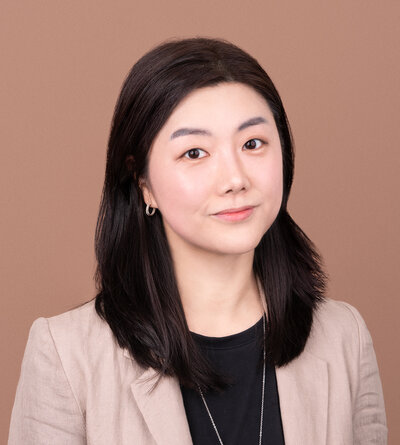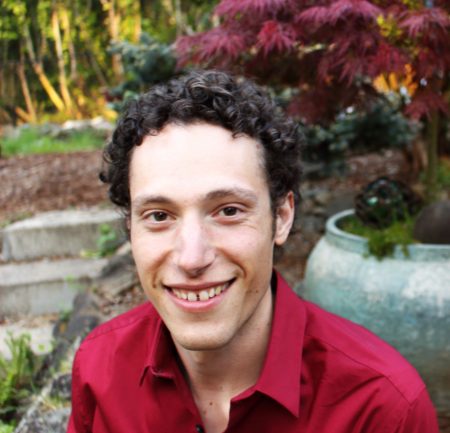Page 28 • (746 results in 0.054 seconds)
-

Psychology. While in undergrad, Sarah was a student employee with the offices for Campus Life and the Dean of Students. Sarah grew up in Portland, Oregon and loves hanging out with friends, trying new restaurants and volunteering in the Puget Sound Community. Outside of work, Sarah owns a private music studio with her partner in Tacoma.
-
Writing J. Native American & Indigenous Studies Program K. Department of Philosophy L. Department of Political Science M. Publishing & Printing Arts Program N. Department of Religion O. Department of Sociology & Criminal Justice Section 3. COLLEGE OF NATURAL SCIENCESA. Department of Biology B. Department of Chemistry C. Department of Computer Science D. Department of Earth Science and Environmental Studies E. Department of Mathematics F. Department of Physics G. Department Psychology H. STEM Education
-

Ami Woo, DNP, ARNP, FNP-BC Assistant Professor of Nursing Email: ami.woo@plu.edu Professional Biography Education DNP, Nursing , University of Washington , 2024 BSN, Nursing , University of Washington, 2016 ADN, Nursing, Shoreline Community College , 2015 MSc, Management Psychology, University of Nottinghamq, 2011 BA, German Studies, Kyungpook National University, 2006 Areas of Emphasis or Expertise Acute care nursing (med-surg, telemetry, pediatric ICU), urgent care nursing, clinical teaching
Contact Information -
Jennifer Beller Associate Professor of Educational Psychology and Kinesiology Full Profile
-
POLS 345: Government and Public Policy 4) Innovation Seminar Four Semester Hours INOV 350 — Innovation Seminar Psychology Major / Innovation Studies MinorA PLU Psychology major could complete his or her Innovation Studies minor with the following courses, maximizing “double-dip” credits (4 accepted Psychology credits in the minor). As Psychology majors already have the SO requirement complete, consider taking PHIL 248 for Philosophy (PH) credit for your Introduction to Innovation Studies course
-
Disarming Polarization: Navigating Conflict and Difference in the 21st CenturyThursday, March 5Friday, March 6Thursday, March 58:15 - 9:45 a.m. | Welcome and Introduction: Asking the Questions Panel: Michael Artime, Corey L. ook, Justin Eckstein, Mary Ellard-Ivey, Sergia Hay, and Heidi Schutz Location: Scandinavian Cultural Center 9:55 - 11:40 a.m. | Religious Divides and the Expanding Circle of Cooperation Speaker: Dr. Ara Norenzayan, Professor of Psychology, University of British Columbia
-
PLUS Group FacilitatorKrystal Handy Ph.D., LMFT was born and raised in the great state of California and ventured to Washington State for a few years following life’s pull to the Pacific Northwest. While in Washington, Dr. Handy became an alumnus of Olympic College with an Associate’s degree in Psychology; earned a Bachelor’s degree in Human Services from Western Washington University; a Master’s degree in Marriage and Family Therapy from Pacific Lutheran University c/o 2019. Dr. Handy returned to
-

College, 2009 Areas of Emphasis or Expertise Music Education, String Pedagogy, Neuroscience/Psychology of Music Learning Responsibilities Music Education and String Pedagogy Selected Presentations Suzuki Association of the Americas Biennial Conference, Making Informed Choices in Finger Preparation and Independence, Louisville, KY (2024) American String Teachers Association National Conference, Invited perception and creative music making: Children’s philosophical dialogue in the classroom, Atlanta, GA
Office HoursMon - Fri: -Area of Emphasis/Expertise -

College, 2009 Areas of Emphasis or Expertise Music Education, String Pedagogy, Neuroscience/Psychology of Music Learning Responsibilities Music Education and String Pedagogy Selected Presentations Suzuki Association of the Americas Biennial Conference, Making Informed Choices in Finger Preparation and Independence, Louisville, KY (2024) American String Teachers Association National Conference, Invited perception and creative music making: Children’s philosophical dialogue in the classroom, Atlanta, GA
Office HoursMon - Fri: -Area of Emphasis/Expertise -
(not botany): 8 semester credits or 12 quarter credits, recommend upper division course in genetics General Chemistry or Inorganic and Organic or Biochemistry all with labs: 8 semester credits or 12 quarter credits; do not recommend online or hybrid courses for lab Physics with lab including mechanics, heat, light, sound, and electricity: 8 semester credits or 12 quarter credits; do not recommend online or hybrid courses for lab Psychology: 3 semester credits or 5 quarter credits; abnormal
Do you have any feedback for us? If so, feel free to use our Feedback Form.


